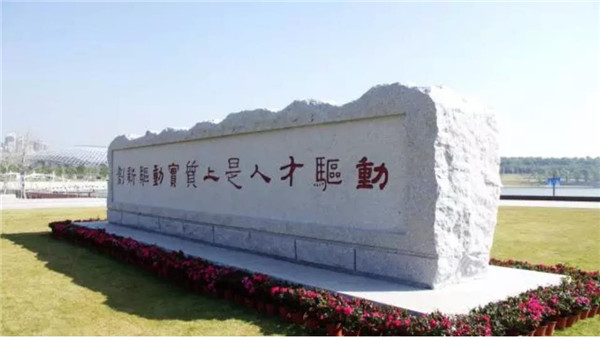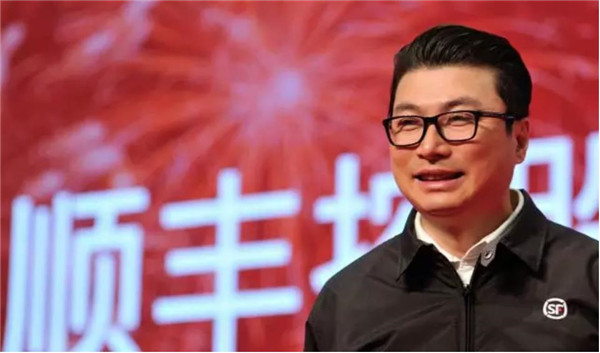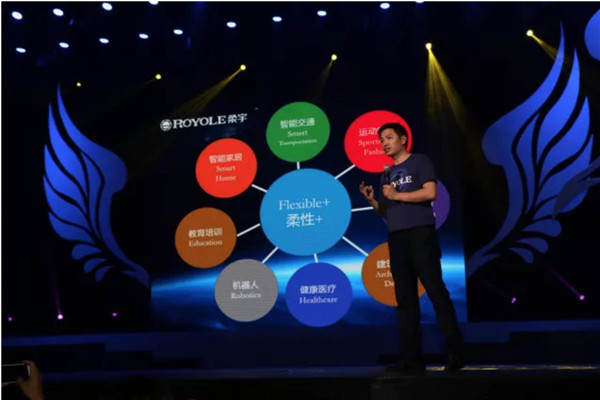Wang Wei, chairman of SF Holding, China’s logistics giant, moved his company to Shenzhen in 2002, and has witnessed his business grow rapidly over the past 16 years. He is one of the many entrepreneurs and professionals to have flocked to Shenzhen since this southern city took off as China's special economic zone in 1980.
Established as a technology hub, Shenzhen has been ramping up efforts to attract skilled people from home and abroad. Thurs far, Shenzhen is home to more than 12 million people, 42.9 percent of whom are professionals in industries ranging from biotech to advanced electronics.
“People come here to fight for their careers”
SF Express began life in Shunde in 1993, and is now headquartered in the Shenzhen Software Industry Base. Wang Wei said he chose Shenzhen because of its convenience and living environment.
“Shenzhen is close to Hong Kong. It can save us a great deal of time on custom clearance,” said Wang Wei, “most importantly, Shenzhen is young and energetic. People come here to seize opportunities and fight for their careers.”
Wang Wei
Last year on February 24th, SF Express was listed on the Shenzhen Stock Exchange through a reverse merger with listed company Dingtai, and announced a name change to SF Holding the same day. Its shares surged 46 percent to 73.48 yuan in the four trading days following the listing.
Wang Wei said now SF is facing major challenges posted by technology companies, and plans to adopt more high-tech solutions to challenges in the logistics business.
“Talent is the key to compete with opponents in the technology sector. We have adjusted SF’s organization structure to introduce more technical staffs into the management team, aiming to attract more skilled professionals and upgrade the traditional business model,” he said.
“Shenzhen is another Sillicon Valley”
Liu Zihong decided to go back to China and start his own company at the age of 29. He worked for IBM at their New York headquarters for more than 2 years and obtained a PhD from Stanford University. At the end of 2010, he spent 14 days travelling around 7 cities in China (including Beijing, Shanghai and Suzhou), and was finally attracted by Shenzhen, the last stop on his journey.
“This is a dream city for start-up companies. It’s another Sillicon Valley,” he said. When visiting Shenzhen, Li saw Huawei & Temcent’s R&D centers, and factories producing for Apple and Samsung. He was stunned by the city’s entrepreneurship and influence on the global industrial chain.
Liu Zihong
In August 2012, Liu Zihong founded his own company, Royole, in Shenzhen, Hong Kong and the U.S. simultaneously to create and manufacture interface technologies and products, such as advanced flexible displays.
Liu Zihong said Shenzhen government offers convenient services for boosting the innovation industry. At the time Liu had just established Royole, he brought his projects to Shenzhen’s innovation committee, a government department which manages and supports tech projects. The committee responded quickly and started a review meeting the day after Liu made a report on his company.
Royole now processes more than 1800 patents worldwide, and has invented a wide range of products, such as the world's thinnest full-color flexible display with a thickness of 0.01mm and the Royole Moon (3D Mobile Theater). It has become one of the most fast growing start-ups around the world.
Shenzhen draws in global skilled professionals
Peter Lobie is a medical scientist from Australia, and has worked in countries such as New Zealand and Singapore. He came to Shenzhen in 2008 and joined the Tsinghua-Berkeley Shenzhen Institute (TBSI) as a director of the school of Precision Medicine & Healthcare.
Lobie said he stays here because the city and TBSI provide various talent policies and huge support for the research programs. Engaging in the R&D of cancer cell-targeting drugs, he has been impressed by the government’s determination to develop the tech industry and its ability to allocate resources to solve problems.

Peter Lobie
Earlier this year, Peter Lobie was approved as a high-level professional by one of Shenzhen’s top talent projects. Under this project, a maximum 6 million yuan will be provided for eligible applicants. He has also started applying for the "Peacock Initiative" and Shenzhen’s Recruitment Program for Global Experts.
China is the world’s second largest pharmaceutical market, which benefits the transfer of R&D achievements and the commercialization of new technology. “In fact, we founded a startup in Shenzhen to develop two new drug candidates for cancer patients,” said Lobie.
Since 2016, Shenzhen has built 6 labs led by Nobel Prizewinning scientists to boost industries such as chemistry, medicine, photo-electricity, robotics and 5G telecommunication. The city has already attracted Nobel laureates including Robert H. Grubbs, Shuji Nakamura and Barry Marshall.
By the end of March this year, Shenzhen had already become home to 16 thousand overseas professionals, and 14 of whom have been elected to the National Recruitment Program for Global Experts. The city is continuously optimizing its talent policies and provides financial support for skilled professionals and tech startups.
Reported by Jasmine Yin, Hu Guangliang, Hu Xiaoxiao, Huang Xuhao, Gong Chunhui, Su Ziwei
Edited by Wing Zhang, Simon Haywood




















